“What’s de matter, Ah don’t hear no birds?” complained Eugene Oliver. “It don’t seem natural.”
Everybody looked up at one time like cows in a pasture.
“Oh you know how come we don’t hear no birds. It’s Friday and de mocking bird ain’t here,” said Big Sweet after a period of observation.
“What’s Friday got to do with the mockin’ bird?” Eugene challenged.
“Dat’s exactly what Ah want to know,” said Joe Wiley.,
“Well,” said Big Sweet. “Nobody never sees no mockin’ bird on Friday. They ain’t on earth dat day.”
“Well, if they ain’t on earth, where is they?”
“They’s all gone to hell on Friday with a grain of sand in they mouth to help out they friend.” She continued:
Once there was a man and he was very wicked. He useter rob and steal and he was always in a fight and killin’ up people. But he was awful good to birds and mockin’ birds was his favorite. This was a long time ago before de man first started to buildin’ de Rocky Mountains. Well, ‘ way after while somebody kilt him, and being he had done lived so bad, when he died he went straight to hell.
De birds all hated it mighty bad when they seen him in hell, so they tried to git him out. But the fire was too hot so they give up–all but de mockin’ birds. They come together and decided to tote sand until they squenched de fire in hell. So they set a day and they all agreed on it. Every Friday they,totes sand to hell. And that’s how come nobody don’t never see no mockin’ birds on Friday.
Tag: Folk lore
Karel Franta’s Marvelous Fairy Tale Illustrations
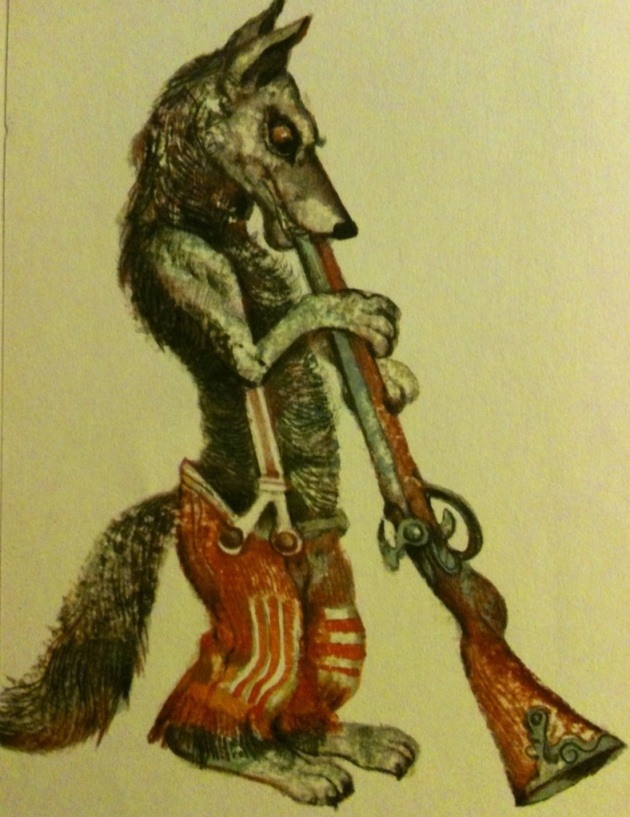
My mother dropped off several boxes of books, comics, and papers I hadn’t delved into in probably 20 years—stuff I’d left at my parents’ house, intending to retrieve at some point. One book I reacquired was a Czechoslovakian folk and fairy tale collection with the nondescript name Animal Fairy Stories (retold by Alena Benesova and translated into English by Ruth Shepherd), a volume collecting over a hundred stories from all over the globe.
These stories had a tremendous impact on me as a child. Most describe a time “when the world was still young and everything was very different,” an amorphous, shifting world full of tricksters and their dupes, kings always precariously poised to fall and fail, interspecies cohabitation, and lots and lots of death. As important as these stories were in forming my reading habits and taste, the book’s illustrations by Czech artist Karel Franta had an even more profound and unsettling impact on my imagination. His strange, marvelous paintings somehow imprinted on my psyche, mixing in with the horror and joy and fascination that all those early stories entailed. Reading over a dozen animal tales with my own children last night, I was taken aback at how precisely each of Franta’s illustrations was etched into my brain, and how each image burned with its own special humor or terror or confusion or weird delight.
Below are a few of his paintings; I’ve tried to share a sampling that showcases his mix of strange pathos, unsettling humor, and dreamworld evocation.
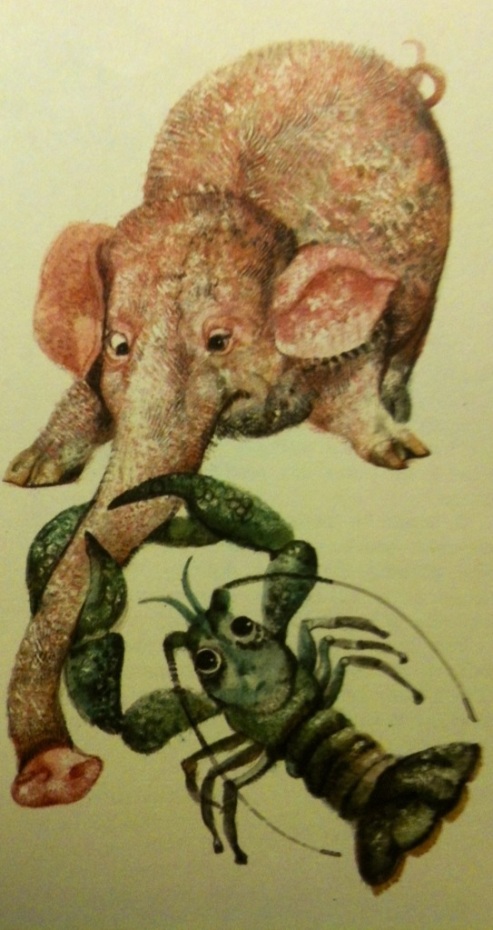
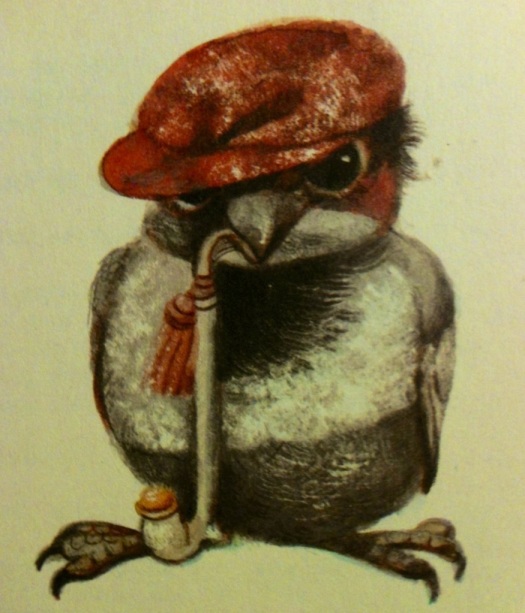
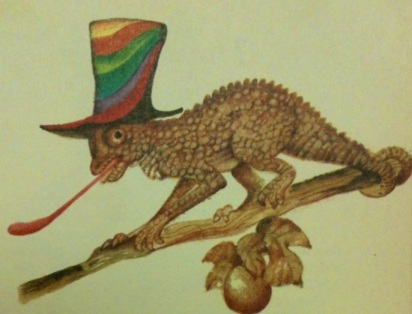

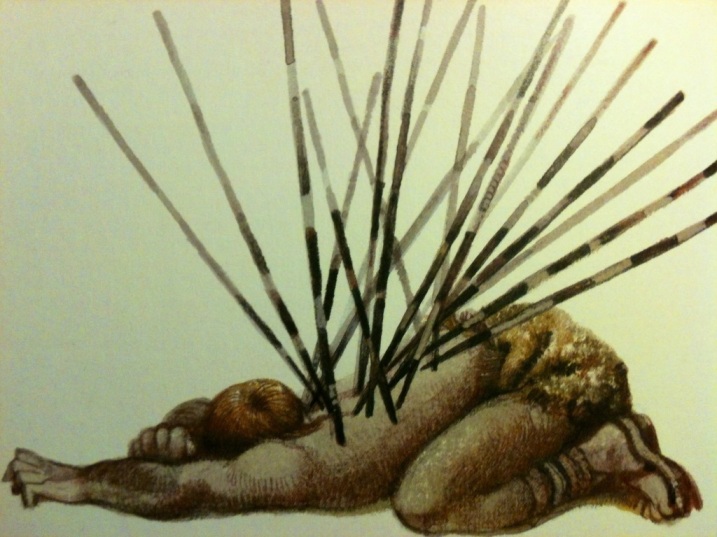
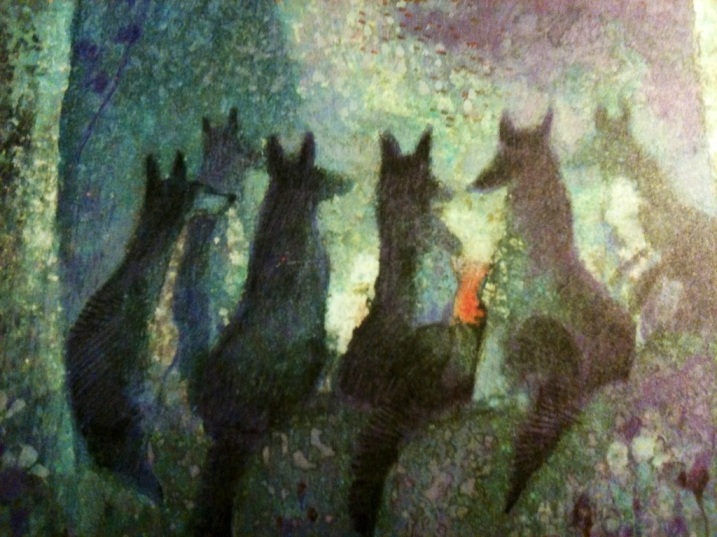
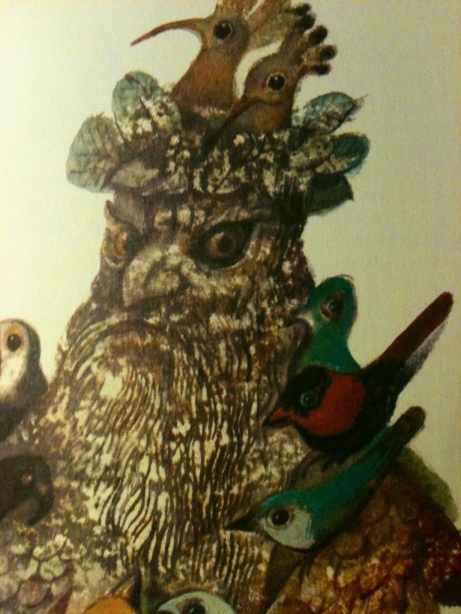


RIP Stetson Kennedy, Florida Folklorist, Writer, and Human Rights Activist
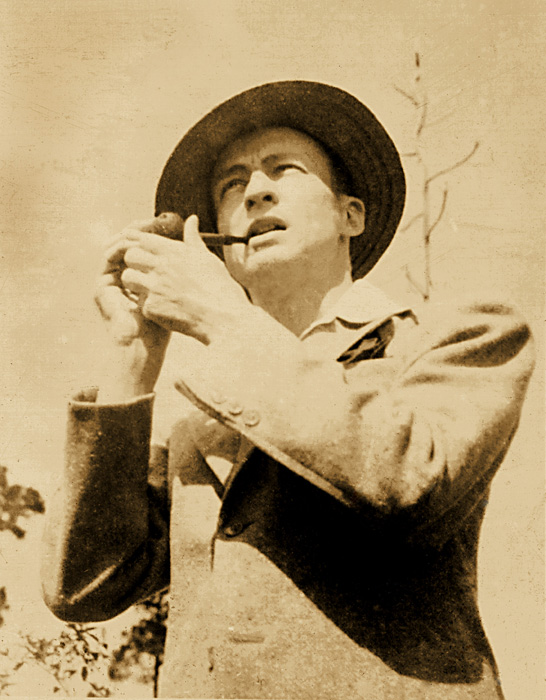
Stetson Kennedy died today at 94 in his native city, Jacksonville, FL.
Kennedy began his career collecting folklore throughout the South in 1937 after leaving the University of Florida. Kennedy worked for the Works Progress Administration’s Florida Writers’ Project, traveling with Zora Neale Hurston to collect oral histories and folk tales from both black and white Floridians alike. In the 1940s, Kennedy worked for the Atlanta office of the CIO. He also infiltrated the Ku Klux Klan in the 1940s and ’50s, exposing many of the racist organization’s secrets and alerting the world to the intrinsic injustice of the Jim Crow system in Southern states.
When Kennedy ran (quite unsuccessfully) for Governor of Florida in 1952, Woody Guthrie wrote the song “Stetson Kennedy” to support his good friend (Wilco and Billy Bragg put the lyrics to music decades later). Kennedy’s anti-Jim Crow, early Civil Rights platform didn’t win him much popularity throughout the state, and when his home in Fruit Cove was firebombed, he moved to France. It was there that the philosopher Jean-Paul Sartre published Kennedy’s The Jim Crow Guide—but the book was too controversial for US publication, despite multiple translations across Europe. Even more incendiary was Kennedy’s expose The Klan Unmasked (1954), which helped to undermine the organization’s secret authority in the South.
Just as Kennedy’s contribution to the Civil Rights movement cannot be underestimated, neither can his work in collecting and preserving Florida folklore (as well as Southern folklore in general). Kennedy helped found the Florida Folklore Society and also served as president, and volumes like Palmetto County and Grits and Grunts: Folkloric Key West will remain staples of Florida folk culture. In 2009, Kennedy bequeathed his papers and personal library to the Civic Media Center in Gainesville, FL, a nonprofit info center and alternative library devoted to human rights, environmental protection, and other causes. Kennedy was closely involved with the CMC since its inception in 1993.
Kennedy was a vibrant fount of cultural and historical force, a man who worked his entire, long life not just to preserve folklore and its history, but also to show the radical place that folk culture occupies throughout time, linking core human values from generation to generation. Stetson Kennedy will live through his legacy.
Kennedy’s website sheds light on his final moments—
He was with his wife and stepdaughter, He was in no pain. And as recently as 4 days ago he was lucid and talking. The doctor, checking his mental faculties asked him questions “where are you from”, Kennedy replied, “The planet Earth”
Stetson’s wishes were for a party and not a funeral. A luncheon at Beluthahatchee will be held October 1st.
Kennedy on This American Life.
Read a 2011 interview with Kennedy in Vice Magazine.
